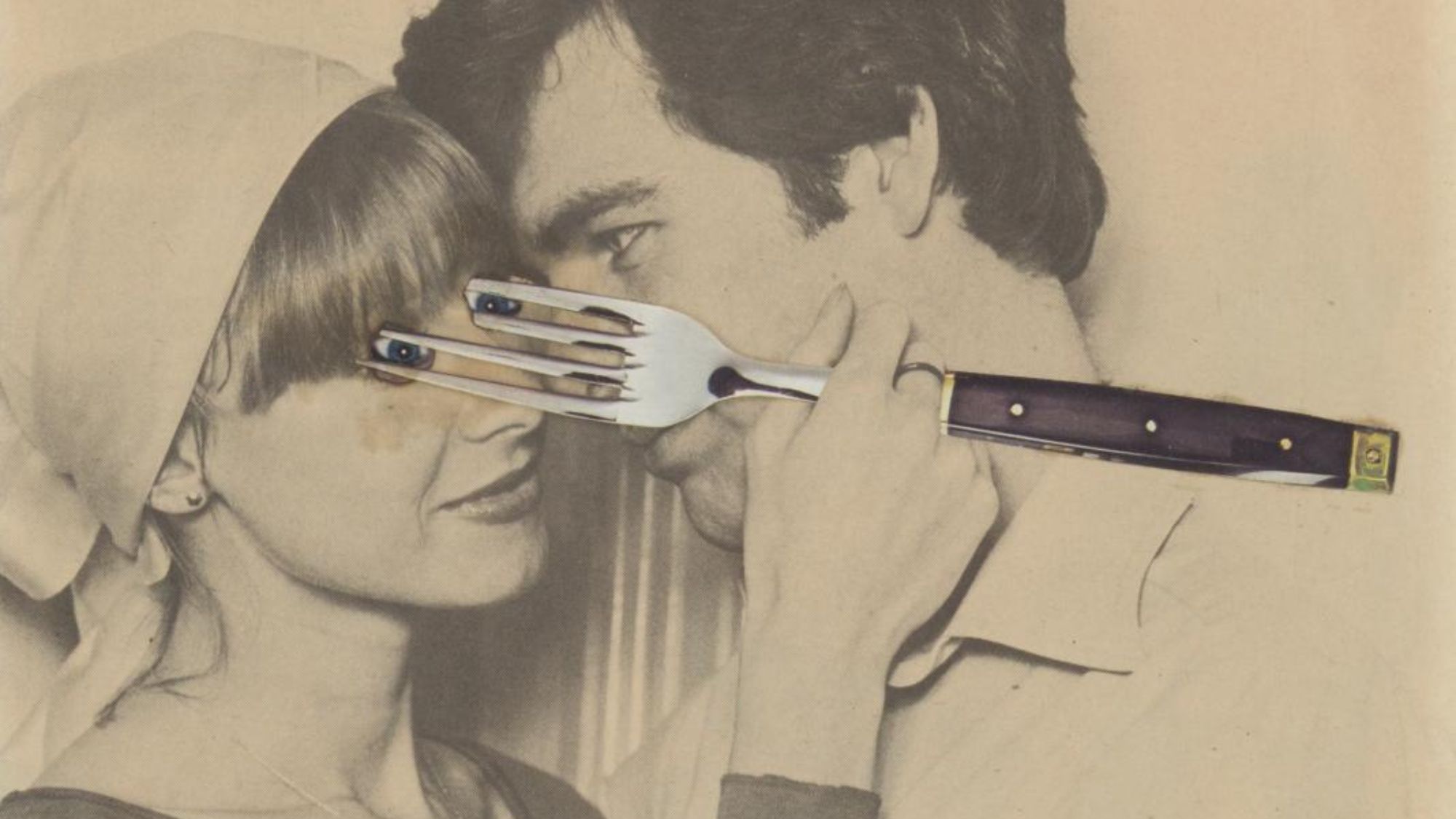Women in Revolt! review: a 'bracing' new show at Tate Britain
Exhibition showcases the largely overlooked feminist art from the UK between 1970 and 1990

A free daily email with the biggest news stories of the day – and the best features from TheWeek.com
You are now subscribed
Your newsletter sign-up was successful
Life could be bleak for women in 1970s Britain, said Mark Hudson in The Independent. They had "unequal pay, no statutory maternity rights, no legal right to say 'no' to their husbands in the bedroom". It was during this "proverbially grim and grotty" era that many women were drawn to feminist activism; and many feminist artists created trailblazing work that paired an inventive DIY ethos with anger, wit and "raw, funny, in-your-face slogans". Tate Britain's "bracing" new exhibition – subtitled "Art and Activism in the UK, 1970-1990" – is a long-overdue survey of a largely overlooked art movement, bringing together more than 700 exhibits to show how these pioneers communicated their message. Featuring everything from paintings and drawings to magazines and posters, from eccentric installation art to protest placards and documentary photography, it is a "marvellously rich" experience that will plunge visitors deep "into the atmosphere of 1970s Britain".
Many works were never intended to be seen in a museum, said Jackie Wullschläger in the FT. The most "engaging" such piece is an installation by Bobby Baker, "An Edible Family in a Mobile Home", first created in 1976. Now on the Tate's lawn, it recreates her own prefab house, but occupied by a family made from edible materials: the fruitcake father "slumps" in front of the TV, while a daughter fashioned from meringues listens to music in a room plastered with Jackie magazine covers. The mother, meanwhile, is a refillable pink dummy, "ever giving, ever feeding". The show demonstrates how artists responded to the period's "casual everyday sexism". Jill Posener, for instance, gives us photos of "gleefully defaced" advertising billboards. "If it were a lady, it would get its bottom pinched," runs the slogan for a new Fiat. "If this lady was a car, she'd run you down," someone has scrawled in reply. Yet the show is decidedly uneven, at times less concerned with art than it is with women's activism. It feels like a "wasted opportunity".

This is, unapologetically, a show about British social history, said Laura Cumming in The Observer. It touches on the Greenham Common protests, the miners' strike, pro-choice campaigns and the "Reclaim the Night" marches of the 1970s. But the art itself is "humorous, trenchant, furious, messy, visionary, riotous". Most of these artists worked with whatever materials came to hand: one "affecting" work is "just an egg box, tiny emblems of a terrible marriage in each compartment", such as a doll's arm or a police helmet. There are some powerful paintings, such as Lubaina Himid's of a white man standing erect, "his phallus a vicious dog"; while Linder's 1976 collage of a nude "with an iron for a head and smiling mouths for nipples" is "devastating". This is an "extraordinary" show that will force you to consider what has changed since 1970 – and what hasn't.
The Week
Escape your echo chamber. Get the facts behind the news, plus analysis from multiple perspectives.

Sign up for The Week's Free Newsletters
From our morning news briefing to a weekly Good News Newsletter, get the best of The Week delivered directly to your inbox.
From our morning news briefing to a weekly Good News Newsletter, get the best of The Week delivered directly to your inbox.
Tate Britain, London SW1 (020-7887 8888; tate.org.uk). Until 7 April, then touring to Edinburgh and Manchester
Sign up to The Week's Arts & Life newsletter for reviews and recommendations
A free daily email with the biggest news stories of the day – and the best features from TheWeek.com
-
 Political cartoons for February 15
Political cartoons for February 15Cartoons Sunday's political cartoons include political ventriloquism, Europe in the middle, and more
-
 The broken water companies failing England and Wales
The broken water companies failing England and WalesExplainer With rising bills, deteriorating river health and a lack of investment, regulators face an uphill battle to stabilise the industry
-
 A thrilling foodie city in northern Japan
A thrilling foodie city in northern JapanThe Week Recommends The food scene here is ‘unspoilt’ and ‘fun’
-
 A thrilling foodie city in northern Japan
A thrilling foodie city in northern JapanThe Week Recommends The food scene here is ‘unspoilt’ and ‘fun’
-
 Tourangelle-style pork with prunes recipe
Tourangelle-style pork with prunes recipeThe Week Recommends This traditional, rustic dish is a French classic
-
 Samurai: a ‘blockbuster’ display of Japan’s legendary warriors
Samurai: a ‘blockbuster’ display of Japan’s legendary warriorsThe Week Recommends British Museum show offers a ‘scintillating journey’ through ‘a world of gore, power and artistic beauty’
-
 BMW iX3: a ‘revolution’ for the German car brand
BMW iX3: a ‘revolution’ for the German car brandThe Week Recommends The electric SUV promises a ‘great balance between ride comfort and driving fun’
-
 Arcadia: Tom Stoppard’s ‘masterpiece’ makes a ‘triumphant’ return
Arcadia: Tom Stoppard’s ‘masterpiece’ makes a ‘triumphant’ returnThe Week Recommends Carrie Cracknell’s revival at the Old Vic ‘grips like a thriller’
-
 My Father’s Shadow: a ‘magically nimble’ love letter to Lagos
My Father’s Shadow: a ‘magically nimble’ love letter to LagosThe Week Recommends Akinola Davies Jr’s touching and ‘tender’ tale of two brothers in 1990s Nigeria
-
 Send Help: Sam Raimi’s ‘compelling’ plane-crash survival thriller
Send Help: Sam Raimi’s ‘compelling’ plane-crash survival thrillerThe Week Recommends Rachel McAdams stars as an office worker who gets stranded on a desert island with her boss
-
 The 8 best superhero movies of all time
The 8 best superhero movies of all timethe week recommends A genre that now dominates studio filmmaking once struggled to get anyone to take it seriously